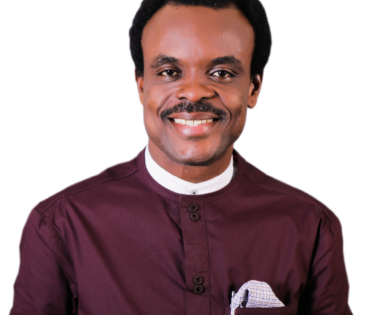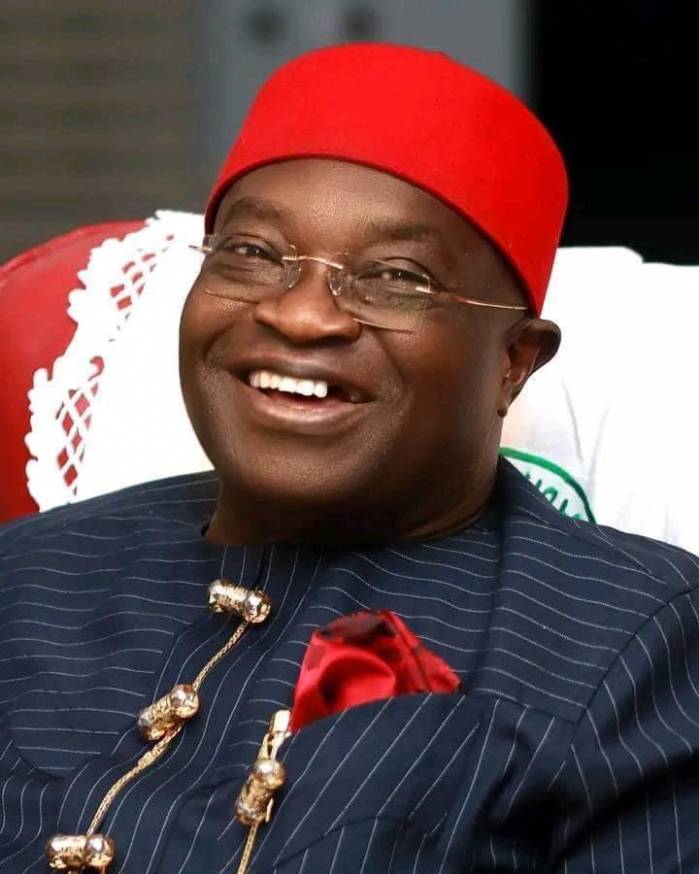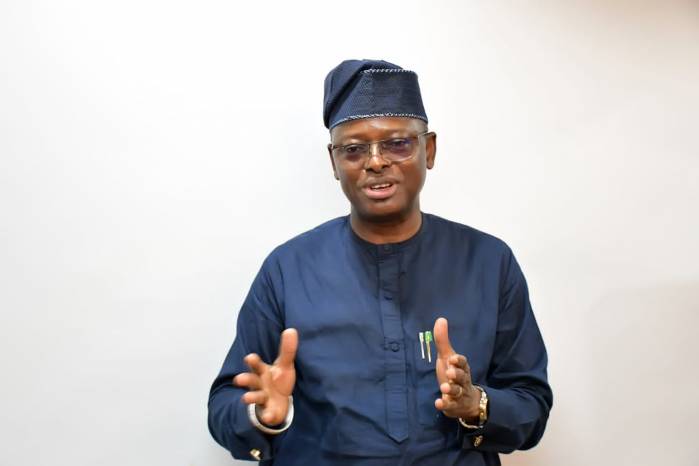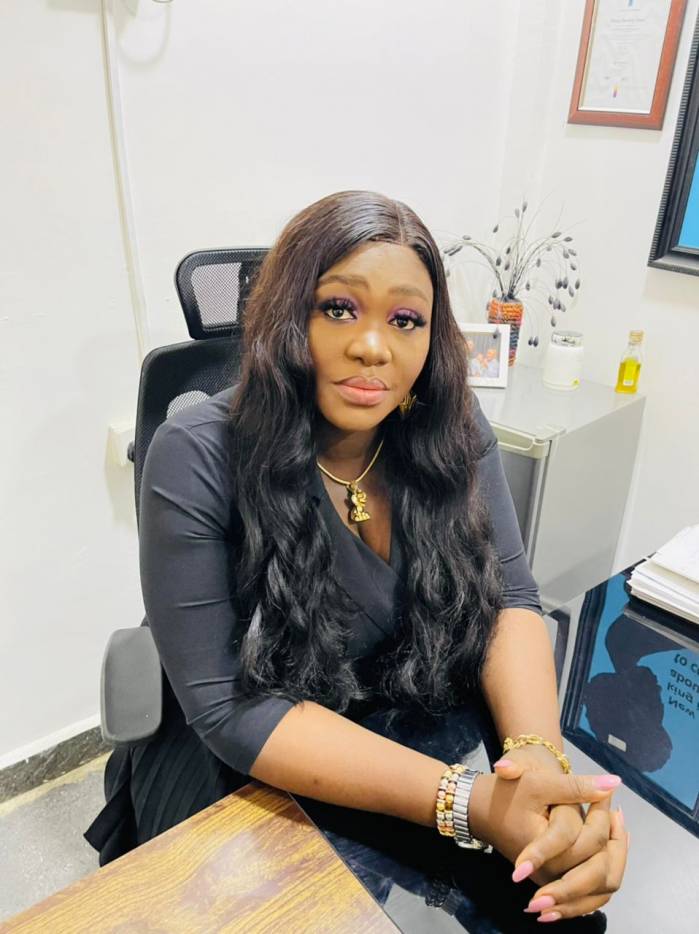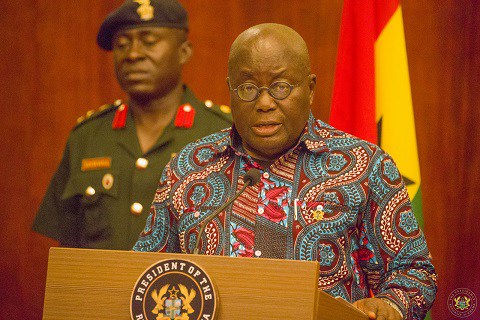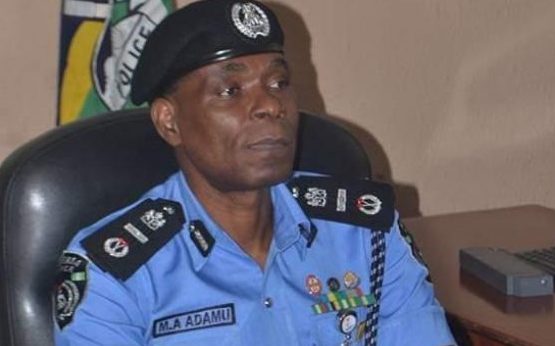Rev. Ikenna Emmanuel is the Governorship Candidate of Change Advocacy Party, CAP, in Imo State. He has a burning desire to change things in the state. Though he has been around in political circles, this is the first time he is contesting for an elective postion. In this interview with our Assistant Editor, CHINWE MADUAGWU, he shares his visions and plans for Imo if elected governor come March 2.
TNE: How long have you been in politics?
I have been in politics from the base support system from 2010, but this is the first time I am contesting. I supported and created some systems that assisted during Governors Ikedi Ohakim and Rochas Okorocha to office, but I never wanted to get involved in contesting for any political position.
TNE: So what changed your mind that you are now contesting?
What changed my mind was that I supported some people over time but found out that these people did not have the necessary leadership traits and capacity to drive the system.
I made up my mind to run on December 21, 2016. I knew we were soon getting into the election year. So I was going to different churches to talk to people between the age bracket of 35 and 50 years because as a Christian, I believe that Christians have the necessary leadership character and charisma to drive the process.
I discovered that most of them were either incapacitated in the area of spirituality or in the area of human development or in the area of finance or they didn’t have the faith to push it. We have this mindset that politics is bad and all politicians are bad. I decided to run, first to bring the change that Imo needs and also let my fellow Christians know there is nothing to it.
TNE: You are proposing a “Government of Solution,” for Imo State. What are the problems that you want to come and solve?
I have identified about seven problems. I call them “the seven mountains of Imo decay.” They are; destruction of good governance; flagrant disregard for rule of law; dismantled economy and eroded civil service.
The others are; lowered standard of education; misappropriation cum mismanagement of our common wealth and inconsistent and scary policies that scare investors.
TNE: Can you briefly speak on each of the problems and what you intend to do to correct them?
The first one; destruction of good governance; by reason of my personal value system, I want to make sure that the principles of good governance; equity, fairness and transparency are applied in Imo governance. I’m a transparent person by personality not just because I want to be the governor. I can carry my personal life to my public office. Transparency can take care of good governance.
The second one has to do with flagrant disregard of Rule Law; we understand the principles of separation of power- the judiciary, the executive and the legislature. This has been the challenge of Imo State where the governor is always manipulating what happens in the executive, the judiciary and with the lawmakers making the system drag at a tortoise-like speed. When I become the next governor of Imo State under the Change Advocacy Party, my commitment would be to make sure there is separation of powers so that government can run smoothly.
The third one, dismantled economy; within the period of 2011 and 2017, Imo State has dropped in terms of Internally Generated Revenue (IGR) making us indebted to the tune of N125billion, that’s apart from debts as it relates to pensioners, as it relates to contractors who are not paid and other incidentals from banks. If you add all these, it’s about 200 billion. And then, we discover that there is no platform to generate more wealth.
So, when I become governor, our proposed target is to make sure that Imo Internally Generated Revenue will definitely jump to the tune of N25billion a year so that we would not just rely on the federal allocation account. Our commitment is also to cut down on overhead cost as it relates to the management of the government.
The forth one has to do with eroded civil service. Civil service is always the engine of government. Every policy that is set up by any government will flow into the vein of the society through the civil service. We have found out that undigitalised civil service has become the bane of governance in Imo and most of them are not being paid as at when due.
When we were growing up, our parents who worked in the civil service could borrow money and say I’ll pay back on the 28th of the month and be sure that the government would not owe. But now, nobody can borrow money. Then, civil servants could take their time to build houses because the salaries were coming regularly. This made civil servants not to be covetous or greedy and corrupt because they were contented. We are going to restore that glory to the civil service.
I have a system that does not owe; in our school and church system, we don’t owe. By the 28th of every month, people are paid. You don’t practice competence in the public domain; you do it on the private platform first.
Then the issue of lowered standard of education; school intakes have increased in Imo quite all right but the quality of education has actually reduced when we have a statistics of 1to 67 i.e one teacher to 67 students in a class. In one of the schools here, we have streams up to elementary 1 Z, that’s why most times teachers can’t meet up. But we can actually break up the classes, open up the system and get more teachers.
When I become the governor of the state, we are going to make it at most 1to 23 in a class, and we are going to do that by what I call teacher mentorship scheme. We will target graduates from the higher institutions here. While new teachers are coming into the system, the older ones who are retiring can mentor the new ones so that our children can meet up with internationally acceptable standard.
Then misappropriation cum management of our common wealth; this is very critical. With the issue of management, we have devised what is called FASTER Imo. FASTER Imo is an acronym- F talks about fix and finish the projects that have been established by the current system; we have A for activate, to activate the latent potentials both human and material. We have S for synergy. We are going to work together with foreign and local persons to make sure Imo moves faster. T is for transformation and then E, which stands for effective management of resources, which has to do in economics, with scale of preference, priority, and efficiency, different from effectiveness. We are not just going to deploy the principles of effectiveness but we are also going to include efficiency to reduce wastage. Planning reduces inefficiency so we are going to have a master plan for Imo.
Then we look at the issue of inconsistent and scary polices. These are the things that have chased away investors. We discovered that Imo is number 34 on ease of doing business in Nigeria, and this has to do with some non-tax platforms that one can actually create. If there is no enabling environment, people will not come to invest. Anybody who wants to invest must first find out the enabling laws in case a conflict arises between him and somebody. So the judiciary must work, the health system must work, there must be security, among others. These are the enabling environments that we must create under the Change Advocacy Party to attract investors to the state. We will also have some tax incentives. Imo is about 5 million people, there are so many people that we can use to grow the state.
TNE: How do you propose to increase Internationally Generated Revenue in the state?
It’s a simple thing. We have four major higher institutions in the state and every student in the physical or applied sciences do internship in the second and third year and some in the final year. We have done an analysis and found that every year, about 23, 000 undergraduates go for industrial training and you find them moving into places like Lagos, Abuja and Port Harcourt. So what do we do? In every area ranging from Polymer & Textile, Industrial Chemistry, Architecture, Building and Human Resources, we have a system where we would set up 84 cottage industries that could service these areas. As long as there is production, Imo people are committed to consuming. So we provide the places for IT for these undergraduates. You can pay an IT student N15, 000 and since he stays in Imo state, he will be happy rather than go to Lagos where they will give him N30, 000 and he spends N25, 000 on transport and has nothing to fall back on. Why don’t we get these young people to work in those places and from there, there will be increase in production and it will also provide jobs in the state because right now, people believe there’s no job in Imo State.
We are therefore going to establish 84 cottage industries in the 27 local governments in the state to serve as instruments for generating wealth. We have all these people on the streets picking plastic bottles, papers and other things to sell to others for recycling, we plan to get machines for some of them on credit so that they can do the recycling rather than selling to others.
READ ALSO: Kano Stands Still For Atiku
Every week, Imo State imports 30, 000 bags of garri from neighbouring states and each bag costs about N8, 000. Ironically, Imo has one of the best garri around in places like Ohaji, Ngwa and others. Why not open up those places and commercialise garri production. There are also a lot of other things that the cassava can be used for, why do we now send our money to all these other places.
These are some of the things we want to put in place to increase the IGR of the state.
TNE: Among all the states in Nigeria, Imo has the highest number of governorship candidates, about 64 of you; why so many of you?
One reason is that everybody is angry with the present government and system in the state. Everyone is like ‘what is it?’ I believe that each and every one of us who came out did so because there was something the person felt that was wrong in the state. It was like, ‘who is even in that place that I can’t do better? It looks like there was a meeting for people to come out, but how I wish there was such a meeting, we wouldn’t have been this many.
You know, Imo State is very peculiar. It’s going to serve as the hub of national development that’s why everybody is interested in what happens here. There are three elections that will hold in this 2019; the whole Nigeria, Lagos and Imo State.
TNE: The sitting governor in Imo state, has said that he will go to any length to ensure his son-in-law succeeds him. Between all the other parties, are you thinking of an alliance that could make you stronger to ease them out or do you think that individually, one of you can do that?
When I talked about FASTER Imo, I said S stood for synergy. A tree cannot make a forest. So we are talking with other parties.
TNE: What are your thoughts about the Ekeukwu Owerri Market that the state governor forceful relocated from its ancestral site?
First, we have to understand that that market is the local market of the five villages that make up Owerri town. We should also understand that, that is someone’s local government even though it is located in the municipal. We should give them that consideration. But when we are looking at the issue of law, by the reason of Land Use Act of 1978, the local government land is in the hands of the local government and the state’s land is in the hands of the state government. There is this over-lapping interpretation of the law as it relates to the Ekeukwu Owerri contention.
But as long as government wants to use a particular place for purpose of public policy, the government can have access to it and pay compensation. What we should be looking at is whether the people were compensated.
Already a structure is being erected there, were the people compensated, both the locals and those who owned shops there? If the government felt that place was no longer conducive as a market, the people could be relocated to another place with structures in place. It could be done following due process.
The fact remains that even though it is the village market of some people, it has now by implication become government responsibility. Owerri people should look at it in that way; ask for compensation or say build us another site and allocate accordingly.
TNE: It’s good you raised the issue of local government, what do you think about local government autonomy?
There’s a project we have called HEAL; H, talks about hospitals, E, talks about education, A, talks about agriculture and L, talks about land accessibility. We have discovered that there is a joint allocation account approved during the time of Governor Achike Udenwa that every money that comes to Imo State through the joint account, 34% of it should go to the local government, but no government has implemented that policy. My government, when I get into government will separate and allow the local government to function.
I remember when we were growing up, if you wanted to get your local government identification, you went to your village and you would see a local government chairman, a local government permanent secretary, health officers and other people working in the local government, but all that has evaporated into thin air. Everybody is coming to town. We must get all those things back again and we will do that by working with traditional rulers, President Generals of town Unions to make sure such town Unions are functioning and then look at the already existing local government offices, upgrade them so that they can function as liaison offices. With that, we reduce whatever migration that comes into town and local governments will start functioning.
As long as there is good education system in the local areas and there are functioning health centres, with agriculture receiving the necessary incentives and soft loans and as long as land accessibility and availability are taken care of, the local governments will start functioning and people will forget what’s going on in town.
TNE: What in your opinion is the greatest challenge facing Imo State?
It’s the economy. I’m a political economist and we understand the principles of super structure and soft structure. The super structure talks about the people; the governors, the bourgeoisies while the soft structure talks about the finance. Whosoever controls the soft structure controls the super structure.
As long as there is even distribution of wealth, people can control any area. My government will make sure that not only the governor becomes a super power because as long as it is only the governor that has the big power, which is what we are experiencing now, nothing much will happen. You go and talk to Imo people and tell them don’t vote a bad person, we will give you rule of law, rebuild Imo and all that, and somebody comes up and says, ‘I don’t have money, hunger has dealt with me,’ anybody that gives that person N2, 000, is the person he/she will follow.
I was passing through a place that someone was campaigning and I saw people fighting over a pack of plastics soft drink and I felt so bad. You see old women on the road because they followed one man to campaign. I’m sure none of them will go home with anything more than N2, 000, that’s if they get up to that. All this is because the economy is not circulating and as long as it is not circulating, it’s opening doors for a tyrant, whoever is the leader to exploit the people and that is what happened during the civil war.
Here, it’s like involuntarily people have surrendered, saying do with us whatever you want to do. That’s why I say economy is the greatest challenge of Imo unlike Anambra, for instance, where an analysis showed there are about 1, 800 multibillionaires. That is why nobody can control whatever is going on there. If somebody makes too much noise a few people can contribute 1billion each and get him out. But in Imo, you can hardly meet anyone who can bring out one billion. That’s why someone gets into government, hijacks the money and makes everyone poor. If they remove money from you, you can’t function. All the good things we have are a function of finance. If you remove finance from people they are weak. That’s why I believe that money should spread so that people can express themselves and next time there’s election, there will be two or three contesting so that people can make a good choice from the good ones unlike now that we are about 67. How does one make a choice?
TNE: Talking of making a choice out of 68 contestants, why should anyone choose to vote for you?
First, I have stayed in this town (Owerri) for more than 35 years. Secondly, I have character and pedigree following me. Thirdly, I’m a leadership consultant. Fourthly, I’m not a politician, I’m a nation builder and lastly, I love people.
TNE: Briefly, what’s your background?
I have a degree in Micro-Biology with specialty in Virology and Parasitology. I also have a degree in law. After law school, I did a post graduate study in Peace and Conflict and another post graduate study in International Relations and Diplomacy.
